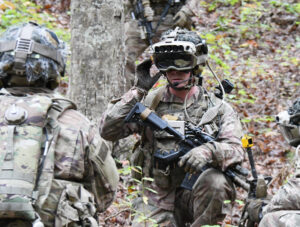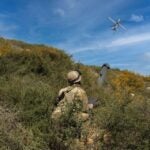
The Pentagon’s inspector general is conducting an audit of the Army’s potential $22 billion Integrated Visual Augmentation System (IVAS) headset program. “The objective of this audit is to determine whether Army officials are producing and fielding Integrated Visual Augmentation System units that meet capability requirements and user needs. We may revise the objective as the audit proceeds, and we will also consider suggestions from management for additional or revised objectives,” the DoD IG’s office wrote in an Oct. 4 memo.…

 By
By 











